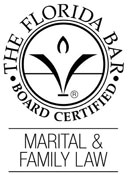
Palm Beach Gardens Paternity Attorneys
We Assist Families Throughout Palm Beach County & Beyond
Regardless of how you were expecting your family to grow, a paternity action can make everything more complicated. If you are the mother of a child born out of wedlock and are seeking child support, or if you are the father of a child and have been served with a paternity action, you may have questions about how to proceed. At John F. Schutz, P.L., we can help you answer these questions and guide you through the process.
Paternity actions can be a pivotal step in establishing legal rights and responsibilities for both parents, which can significantly impact the child's well-being and development. By legally determining paternity, children can gain access to essential benefits such as child support, health insurance, and inheritance rights from the father. Additionally, for the father, establishing paternity can mean acquiring rights to participate in critical parenting decisions, thus fostering a more balanced parental influence in the child's life.
Why Is Paternity Important?
As defined by Florida paternity laws, paternity is a process to establish the legal relationship between a child born out of wedlock and the putative (alleged) biological father. A paternity lawsuit may be filed either by the mother or the father of the minor child. During the litigation, the court can establish the rights and responsibilities of each parent, including participation in parenting decisions (i.e., Shared Parental Responsibility) and the establishment of child support.
Additionally, recognizing paternity is a fundamental aspect of a child's identity, giving them a greater sense of belonging and a fuller understanding of their heritage and family history. Missing out on recognizing paternity can mean losing opportunities for personal growth and access to extended family relations, which can be a cherished part of a child's upbringing. Furthermore, a legally established paternal relationship can significantly bolster the emotional and financial support system available to the child.
Discuss your case directly with a Palm Beach fapaternitymily lawyer. You can book your confidential consultation by contacting us online or at (561) 677-2462.
Who Can File a Paternity Action?
Any woman who is pregnant or has a child, a man who has reason to believe he is the father of a child, or any child may bring proceedings to determine paternity when it has not been established.
Furthermore, other parties such as legal guardians or the state may sometimes initiate paternity actions if it is deemed in the child's best interest. This broader eligibility underscores the importance of paternity actions, as they are sometimes necessary not just for familial reasons but also for broader social and legal accountability. Understanding who can initiate these actions can empower individuals and families to take control of their circumstances and ensure the child’s needs are prioritized.
How Do I Establish Paternity?
In Florida, there are five ways to establish paternity:
Marriage: The parents are married to each other when the child is born.
- Acknowledgement of Paternity: The unmarried couple signs a legal document in the hospital when the child is born, or later.
- Administrative Order Based on Genetic Testing: Paternity is ordered if a genetic test proves fatherhood.
- Court Order: A judge enters a final judgment of paternity.
- Legitimation: The mother and natural father get married to each other after the child is born and update the birth record through the Florida Office of Vital Statistics. If the mother is not married when the child is born, but later marries the child’s father, the law presumes the husband to be the child’s legal father. When this happens, the father’s name is not automatically added to the child’s birth certificate. To add the father’s name to their child’s birth certificate, the parents must send two documents to the Florida Office of Vital Statistics:
- A certified copy of their marriage certificate
- A completed Acknowledgement of Paternity Form DH-432, signed by both parents.
Establishing paternity can also involve navigating complex legal documentation and court rulings. A skilled paternity lawyer can guide you through understanding the nuances of each method, ensuring that your rights as a parent are fully recognized and protected. This process is not only about legal recognition; it's about forming a bond that is acknowledged by society, securing the future and well-being of the child involved.
What Will Happen Once Paternity Is Established?
Typically, a parenting plan will be determined, which will include a time-sharing schedule. Child support will be determined and, if necessary, the financial responsibility for hospital or medical expenses pertaining to the birth of the child will be determined.
Once paternity is established, both parents gain the opportunity to share in raising their child, contributing to decisions relating to healthcare, education, and other critical aspects of the child's upbringing. This shared responsibility also often leads to better cooperative parenting arrangements, promoting a stable, nurturing environment for the child. Furthermore, with established paternity, the child is entitled to financial security, which includes health insurance coverage and access to other benefits and rights such as social security and veteran's benefits as applicable.
Before I Can File a Paternity Lawsuit, Do I Need Biological Determination of Paternity (a DNA Test)?
No. However, if you are uncertain as to the paternity of a child, we always recommend paternity testing. The Court has the authority to order a party and child to submit to DNA testing. Scientific research shows that DNA paternity testing is more than 99% accurate.
Although not mandatory before filing a lawsuit, having a DNA test can simplify proceedings by providing undeniable evidence of paternity, thus potentially expediting the legal process. This clarity can be especially beneficial in situations where there are disputes or when an amicable agreement cannot be reached between parties. Early and accurate determination through DNA testing can also significantly reduce emotional stress and ensure all parties proceed with a clear understanding of their legal and parental obligations.
If Paternity Has Not Been Established, What Rights Do I Have as a Father?
None. Until a Court enters an order stating otherwise, the mother of a child born out of wedlock is the natural guardian of the child and she is entitled to custody of the child and decision-making authority.
Without legal establishment of paternity, fathers often find themselves lacking any enforceable rights concerning access to or decision-making in their child's life. This underlines the importance of formalizing paternity through the legal processes discussed earlier. Fatherhood rights, including visitation and participation in parenting decisions, are critical aspects that are only secured once paternity is officially recognized. Until such recognition occurs, fathers remain without legal standing to assert their role in the child's life, highlighting the urgent necessity of these proceedings for those seeking active involvement in their child's upbringing.
Understanding Local Paternity Laws in Palm Beach County
Palm Beach County, like the rest of Florida, follows specific statutes and regulations when it comes to paternity laws. Understanding these laws can make a significant difference in how paternity cases are approached and resolved. Local courts uphold Florida Statutes Chapter 742, which outlines the legal framework for determining paternity and securing child support rights. It is crucial for individuals involved in paternity proceedings to be familiar with these laws to navigate the process effectively.
In Palm Beach County, the Clerk of the Circuit Court handles the filing of paternity cases. These cases often require detailed documentation, including financial disclosures from both parents, to ensure that the child's best interests are maintained. Additionally, Palm Beach County offers resources such as family mediation services, which can be instrumental in facilitating a resolution that avoids contentious courtroom battles. Engaging a knowledgeable paternity attorney familiar with local courtroom proceedings and judges can provide invaluable guidance and increase the likelihood of a favorable outcome.
Exploring Collaborative Paternity Resolutions
At John F. Schutz, P.L., we emphasize the importance of collaborative paternity resolutions for families in Palm Beach County. Our approach seeks to minimize conflict and find amicable solutions that prioritize the well-being of the child. By focusing on communication and cooperation, we help parents work together to reach agreements on child support, parenting plans, and time-sharing schedules without the need for prolonged litigation.
Collaborative resolutions not only save time and resources but also create a more supportive environment for the child involved, promoting healthier long-term relationships between both parents and their children. This method often involves structured negotiations where both parties are encouraged to express their concerns and reach a consensus under the guidance of trained legal professionals. By fostering a collaborative spirit, we strive to reduce the emotional strain often associated with paternity disputes, thereby safeguarding the interests of all parties.
Common Questions About Paternity in Palm Beach County
What Services Does John F. Schutz, P.L. Offer to Assist with Paternity Issues?
John F. Schutz, P.L. offers a comprehensive range of services tailored to assist families dealing with paternity issues in Palm Beach County. We provide legal representation in paternity actions, which includes guidance on establishing paternity through various legal methods, representation in court proceedings, and advice on related matters such as child support and custody. Our firm is committed to offering compassionate and personalized services, ensuring that the emotional and financial needs of our clients are addressed throughout their legal journey. Additionally, we place strong emphasis on collaborative law approaches, intending to reach amicable solutions that benefit the entire family.
How Does Child Support Work After Establishing Paternity?
In Palm Beach County, once paternity is established, child support becomes a critical matter to address. The court utilizes the Florida Child Support Guidelines to calculate the appropriate amount of support, taking into account various factors such as the income of both parents, the child’s healthcare and educational needs, and any other pertinent expenses. It is essential to note that child support is intended to ensure that the child's financial needs are met adequately by both parents, regardless of their living arrangements. At John F. Schutz, P.L., we assist our clients through this process, helping them understand their financial obligations and ensuring that the support arrangements are fair and in the best interests of the child.
Are There Alternatives to Court for Resolving Paternity Disputes?
Yes, there are several alternatives to resolving paternity disputes without resorting to court litigation in Palm Beach County. Alternative dispute resolution (ADR) methods, such as mediation and collaborative law, offer a less adversarial approach to resolving these issues. Mediation involves a neutral third-party facilitator who helps both parents communicate their concerns and reach a mutually acceptable agreement regarding paternity, child support, and custody arrangements. Collaborative law, on the other hand, involves both parties working together with their respective legal representatives to resolve disputes outside of court. By choosing these ADR methods, many families find they can reach agreements more amicably, saving both time and resources while minimizing stress and conflict.
What Happens If the Presumed Father Denies Paternity?
If the presumed father denies paternity in Palm Beach County, the court may order a DNA test to resolve the issue. DNA testing is the most reliable scientific method for determining paternity, with results that are over 99% accurate. If the test confirms paternity, the court will proceed with establishing the father's parental responsibilities, including child support and custody arrangements. In situations where the father continues to deny paternity despite positive test results, legal action may be required to enforce responsibilities and obligations. Engaging an experienced paternity attorney from John F. Schutz, P.L. can provide crucial support in navigating these complex situations, ensuring that the child's best interests remain at the forefront of the proceedings.
How Does Establishing Paternity Affect Child Custody in Palm Beach County?
Establishing paternity is an essential step in determining child custody arrangements in Palm Beach County. Once paternity is confirmed, the biological father can assert his rights to seek custody or visitation, thereby establishing a legal relationship with the child. Custody decisions are based on the child's best interests, with the court evaluating factors such as the child's age, health, emotional ties with each parent, and the parents' ability to provide for the child's needs. A confirmed paternity status allows for a fair consideration of the father's involvement in the child's upbringing. At John F. Schutz, P.L., we guide fathers through this process, ensuring that their rights are recognized while prioritizing the welfare of the child.
Contact our firm online to speak with a Palm Beach Gardens paternity attorney about your case and discover how we can assist you.
Are You...
- Looking for legal advice?
- In need of a legal consultation?
- Looking for answers?
John F. Schutz, P.L. is here to help you and provide legal guidance as needed.

Hear From Our Happy Clients
"Genius divorce lawyer"
John Schutz is a brilliant lawyer. Not only did Mr. Schutz do an excellent job cleaning up the mess from the previous lawyer, he in my estimation was key in me ultimately obtaining a very good outcome. I had a very contentious divorce and the opposing lawyer was very unprofessional and somewhat abusive. Mr. Schutz through his professionalism and excellent people skills was able to reign in the opposing attorney's unprofessional conduct. Mr. Schutz ran circles around the opposing attorney as he was always prepared and was quick on his feet. He is well worth the money in my opinion. Due to his skill and the ability to outclass the opposing attorney, a trial was avoided which ultimately would have been far more costly. Highly recommend.
- Elizabeth








